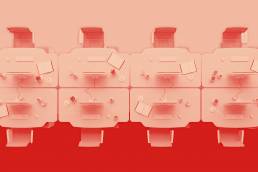Coworking spaces in Korea overall experienced a massive rise in popularity before the pandemic, mostly because entrepreneurship has increased in Korea over the past decade. However, once COVID-19 hit Korea, many startups in Korea had to leave these coworking spaces and consider working remotely. In 2023, coworking spaces are back on the rise, attracting freelancers and other independent professionals who want to work in a shared, communal space.
Entrepreneurship is also on the rise in Korea and is becoming an increasingly popular career path, and co-working spaces are at the forefront of this trend. Co-working spaces offer many benefits to entrepreneurs, including a collaborative environment, access to amenities and equipment, and flexible lease terms perfect for startups.
Why Entrepreneurs in Seoul Flock to Coworking Spaces
Koreans for decades wanted to work for a big corporation and get a stable office job. That mentality started to change in 2010 as more and more people embraced entrepreneurship in Korea. This movement peaked in 2019 as co-working spaces allowed startups and small businesses to scale up as they go without committing to long leases. However, by the start of 2020, COVID-19 slowed down the movement. However, in 2023, things have shifted again, and we see co-working spaces in Seoul being filled back up.
One of the main reasons for this is that co-working spaces are designed to be collaborative environments that promote teamwork and social interaction. Koreans are naturally shy, and these environments make it easier to connect. Unlike traditional office settings, co-working facilities bring together individuals from various industries, backgrounds, and experiences. This makes building professional relationships easier. Additionally, co-working spaces in Seoul often host events, workshops, and seminars that encourage entrepreneurs to learn from one another and share ideas.

In Seoul alone, there are over 60 co-working spaces. Some of the most notable include WeWork, Fast Five, Fab Lab, Google for Startups Campus, Maru 180, and the most recent, HEYGROUND. There is also a new Blockchain co-working/co-living space called nonce that opened up near Gangnam Station. In these co-working spaces, you will find entrepreneurs working on projects they care about in Seoul. In addition, co-working facilities offer access to amenities that entrepreneurs might not have in their homes or traditional office setting. These amenities include high-speed internet, printers, scanners, conference rooms, kitchens, and recreational spaces. Access to these amenities can help entrepreneurs save on overhead costs and focus on growing their businesses.
Entrepreneurs in Seoul Thrive in CoWorking Spaces
CoWorking spaces in Seoul brought a lot of benefits to the startup community. It was not just about networking, free coffee, and comfy furniture. Many Co-working spaces in Seoul pride themselves on the strength of their community. An offline community has a more substantial impact than an online community. Those who have meetings on Zoom understand just how less effective it is compared to face-to-face. In addition, many of these co-working spaces offered great networking events and startup events, providing a great way to connect with other entrepreneurs in Seoul.
Traditional Office vs. Co-working Spaces
Co-working spaces allow entrepreneurs to work next to people doing different things. Traditional office work in Korea is looked upon negatively. Everyone is working on the same project, and many internal office politics exist. It is tough to grow your network and learn from others. The culture of just doing your job and staying in your lane shifts while working at the coworking space. The working culture of helping each other out and being a part of a community attracts a lot of Korean office workers who feel trapped. They want to be a part of something. There is a growing social movement to change working life in Korea, and many Entrepreneurs in Seoul who work in coworking spaces feel like they are a part of that movement.
In addition, traditional office leases often require long-term commitments, which can be daunting for entrepreneurs just starting. Co-working spaces offer flexible lease terms, making it easier for entrepreneurs to rent space for as long as they need. This flexibility allows entrepreneurs to scale their business up or down as needed and save on overhead costs.
Entrepreneurs in Korea want more Flexibility.
Many who worked for a Korean company might already know this, but working hours can be brutal. 9 to 6 does not mean 9 to 6. It is frowned upon even to be a minute late, and leaving at precisely 6 pm is unheard of. It is all about working harder and not smarter. Most Korean startups in co-working spaces bring a different work culture. People can decide whether to put in long hours when they have a deadline or can take long breaks during the day. Most co-working spaces in Korea are open 24 hours a day. Therefore most Korean startups allow their workers to take a few hours off work to take care of personal needs. They can even choose where they want to work, whether it be a communal space or a quiet space to focus on.
Moreover, co-working spaces are a cost-effective alternative to traditional office settings. Renting office space can be expensive, especially in prime locations. Co-working facilities offer entrepreneurs a more affordable option, providing access to amenities and a professional workspace. Additionally, co-working spaces often offer various membership plans that fit any budget, which offers great flexibility to a startup business.
Entrepreneurs in Seoul want to be a part of a Community.
Koreans, like most people, like being a part of a community. However, they have the stereotype of wanting to be left alone in tight cubicles or working from home alone. While Japan and Korea still have this stereotype, times are changing. Each coworking space in Seoul has its own identity, and the managers do a great job cultivating unique experiences.
Entrepreneurship can be a lonely journey, and co-working spaces can provide a supportive environment where entrepreneurs can connect, collaborate and learn from each other. They are designed to foster a sense of community and support among members. Many co-working facilities aim to create a supportive environment where entrepreneurs can thrive. This sense of community can provide a much-needed support system for entrepreneurs who may not have access to this type of network elsewhere.
For example, HEYGROUND does meetups and panel talks that bring in speakers from outside Korea. These events and meetups are not mandatory. Members can decide whether or not they want to participate. Just the fact that there is a potential for interaction is key for most Koreans to break out of their shell. In addition, many of these entrepreneurs can help you settle in Korea, help with South Korean Visas, help find the right lawyers/accountants, and introduce you to potential clients.
Coworking Spaces in Seoul post-COVID
The average Korean worker spends over 90 minutes a day commuting to work. There is a chance that many large corporations will use co-working spaces as satellite offices for their employees. Therefore, they can go to the nearest coworking space instead of entering the office. In addition, history has shown a rise in entrepreneurship after a recession.
Entrepreneurs in Korea often struggle with work-life balance, and co-working spaces can help alleviate this issue. Co-working facilities offer flexible hours, allowing entrepreneurs to work when they want. Additionally, many co-working spaces provide recreational areas, and events that encourage members to take breaks and socialize.

What Korean Companies can Learn from Coworking Spaces
Entrepreneurs in Seoul want purpose and meaning in their life. Most office workers in Korea complain about having no real purpose and being stuck in their routine office life. Workers should have more control and flexibility in their work environment. One way Korean companies can do this is by setting up areas for collaborative work and spaces for quiet work. The bold idea is to make a portion of the office a coworking space. Bring in one or two Korean startups to enhance community and innovation.
The trend of more and more entrepreneurs in Seoul moving into co-working spaces in Seoul is not slowing down anytime soon. With high office space prices in Gangnam, co-working spaces are even becoming an option for Korean companies. This is a good thing. The working culture in Korea already has a bad name, but with co-working spaces, this can and will change. As more individuals in Korea pursue entrepreneurship, co-working facilities will continue becoming popular. Whether you’re a startup founder, freelancer, or solopreneur, co-working spaces offer the flexibility, support, and resources needed to succeed.
Related Posts
A Complete List of Coworking Spaces in Seoul
November 21, 2022






